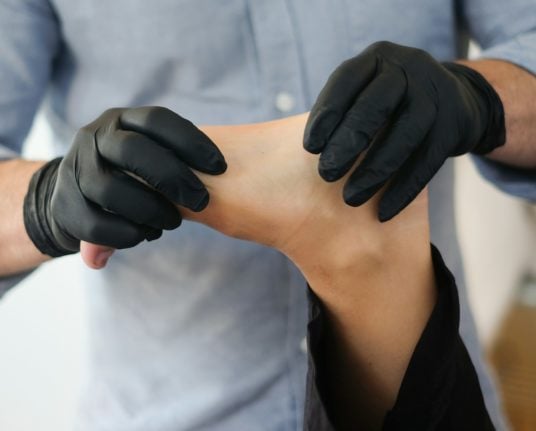Coronavirus measures
From November 3rd, Austria has put in place an extensive range of nationwide coronavirus measures.
The centrepiece is a nighttime curfew or restriction, which basically states that people are not allowed to leave the house between 8pm and 6am unless they have a valid reason.
Events will also be banned – including Austria's famous Christmas markets. Bars, restaurants and cafes are forced to close, other than to offer take away services.
READ MORE: Everything you need to know about Austria's coronavirus shutdown
No more face shields
Plastic face shields – often used in gastronomy as a protection for the transmission of coronavirus – will be banned in Austria from November 7th.
In principle, anti-corona masks must be “covering” and “close-fitting” wherever masks are compulsory.
READ: Austria plans to ban coronavirus face shields
In the explanatory notes it stated: “The background is consolidated evidence that face shields in particular do not have an aerosol-inhibiting effect compared to classical masks.
“Mechanical protection devices such as 'face shields' or ''mini face shields' have thus proved unsuitable for preventing the spread of Covid-19 and are therefore now prohibited.”
'Mini Face Shields' refers to the chin shields, which are particularly popular with waiters and waitresses because they can be more comfortable than traditional masks.
Safe Hospitality: Free coronavirus tests for those in the tourism industry
From November 1st, workers in the tourism industry will be entitled to free weekly testing as part of the ‘Safe Hospitality’ program.
Pursuant to the program, ski instructors, mountain guides, travel guides, tour guides or private room landlords can be tested once a week free of charge.
Tourism Minister Elisabeth Köstinger said the program will encourage the country’s struggling tourism industry.
“At present, an average of 6,000 to 8,000 people are tested on a working day. With more than 350,000 tests, tourism employees are among the best-tested professional groups in our country.”
Flixbus takes a break
From November 3rd, German long-distance bus company Flixbus will be taking a break in Austria, along with Germany and Switzerland.
The company said it hopes to start up services again “sometime during the holidays”.
2021 vignette available
The 2021 annual vignette stickers will be available for purchase from the end of November.
These will cost 92.50 euros – an increase of around 1.5 percent on the cost of last year’s stickers – and will be apple green in colour.
New tariffs 2021 for cars: ten-day vignette: 9.50 euros, 2-month vignette 27.80 euros, Annual vignette: 92.50 euros
New tariffs 2021 for motorcycles: ten-day vignette 5.50 euros, 2-month vignette 13.90 euros, annual vignette: 36.70 euros
Winter tyres
From November 1st, cars and trucks up to 3.5 tons must switch over to winter tyres in Austria.
When driving on in snow, mud or ice, cars must be fitted with winter tires or, alternatively, have snow chains fitted on at least two wheels.




 Please whitelist us to continue reading.
Please whitelist us to continue reading.
Member comments